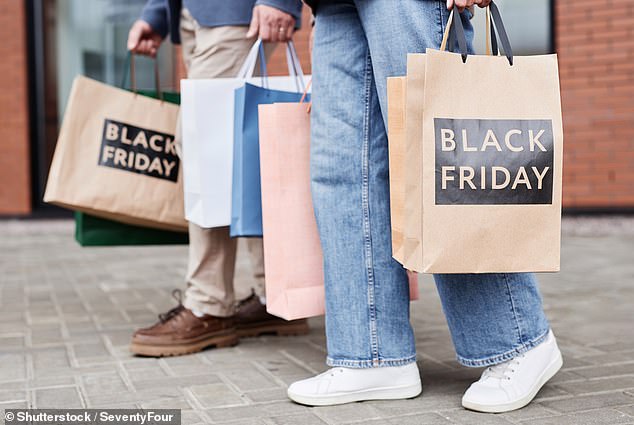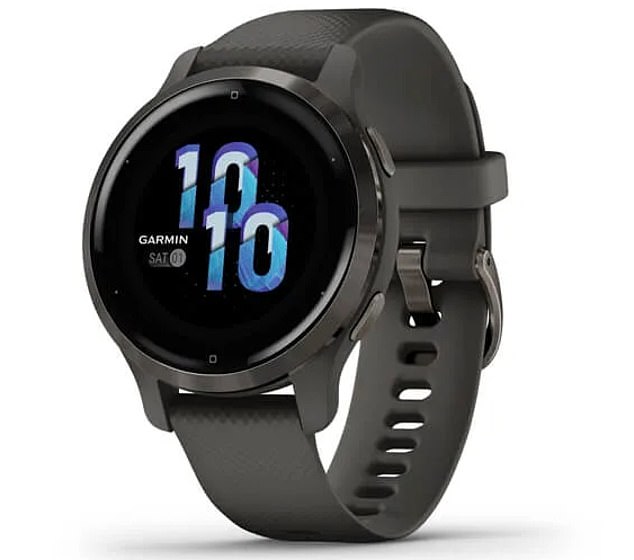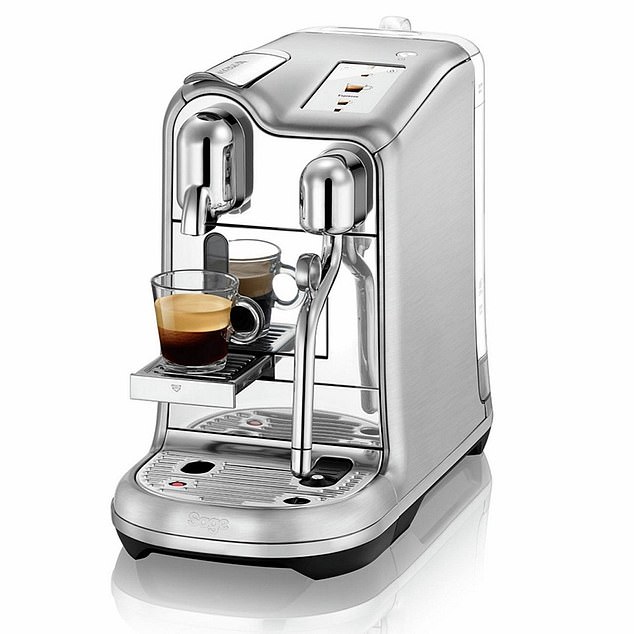With Christmas just a month away, many people will be hoping to pick up a bargain in the Black Friday sales.
However, a new study suggests that shoppers might not be getting the deal they were promised.
Which? has revealed that nine out of 10 ‘deals’ in the Black Friday fortnight are actually cheaper or the same price at other points in the year.
The consumer champion says that retailers are using ‘sneaky’ tactics to inflate the apparent size of reductions.
Out of 224 products from eight of the biggest tech and home retailers, 60 per cent had been at their original price for less than half the year leading up to Black Friday.
Shockingly, Which? discovered 14 examples where the product had never been sold at the higher price in the last 12 months.
For example, Boots offered a Remington Shea Soft Hair Dryer for £18.99 on Black Friday, claiming this was a massive 62 per cent off £49.99.
But in reality, Which? says that Boots had never sold the hair dryer for £49.99 at any point in the previous year – meaning the savings were no where near as big as they appeared.


As the Black Friday sale has grown to cover a full fortnight of deals and discounts, it has become an increasingly important time for Christmas shopping.
Last year, shoppers spent a staggering £13.3bn ($16.74bn) in the period between November 20 and December 1.
However, Which? has warned that Black Friday deals aren’t always what they seem to be.
For the first time, Which? discovered that none of the deals it studied were actually cheaper on Black Friday itself than they had been at other points in the year.
Although the discounts might seem large, the problem is that products are not always sold at the ‘was’ price against which reductions are calculated.
For example, Which? found that John Lewis sold a Garmin Venu 2S smartwatch for £294 during the sale fortnight, at a claimed saving of £90 from £384.
However, at no point in the last year had the watch ever actually sold for £384.
In fact, the most John Lewis had ever sold the product for in the last 12 months was £349.99 – and it did notreturn to this price after Black Friday.

John Lewis disputes the claim that the watch had been improperly discounted, telling MailOnline: ‘The offer on the Garmin watch was correctly listed as “£90 off”, but this offer wasn’t the same for both colours.’
Some products that appeared to be great deals were actually available for better prices in the months leading up to Black Friday than in the big sale itself.
For example, at John Lewis, Which? says the Sage Nespresso Creatista Pro coffee machine appeared to be heavily discounted to £499.95, down from £699.95.
In reality, the coffee machine was available for cheaper than this sale price for 32 days in the six months before Black Friday.
The same machine could be purchased for a price of just £479.95 four months before the start of the sale.
A John Lewis spokesperson said: ‘In a highly competitive and dynamic market, our customers can find brilliant offers with us all year round.’
In another case, Boots sold the ORAL-B iO4Electric Toothbrush for £89 at a seemingly incredible reduction from £240.
But in Which?’s analysis, this product had only been sold at £240 for a single day in the last 12 months.

Other than that day, the highest price Boots ever sold the toothbrush for was £95 – meaning you would be saving £14 rather than £151.
A Boots spokesperson says: ‘Being part of that [Black Friday] promotional programme does not exclude those lines from being on offer at other times throughout the year.
‘Which? reviewed a very small number of our Black Friday deals from last year and in all cases, the items were at a lower price whilst on promotion or when price matched against competitors.’
While Which? says that there are some genuine deals to be had during the Black Friday fortnight, customers need to be careful they are not being blinded by a seemingly big reduction.
Simply because a product is listed as ’60 per cent off’ does not mean that you will be saving 60 per cent on what you would have otherwise paid.
Harry Rose, editor of Which? Magazine says: ‘Our investigation is a reminder to shoppers that they should not feel pressured to splash out on Black Friday purchases as those deals are usually repeated – if not beaten – at other times of the year.’
For customers looking to ensure they’re getting a good deal, Which? recommends using a price tracker website like PriceRunner or CamelCamelCamel.
These services allow you to compare a product’s pricing history to ensure that the deal is as good as it seems.
Likewise, checking the price across multiple retailers can help you figure out if it really is worth jumping on that Black Friday bargain.
Which? is calling on retailers to ‘clean up their act on pricing’ by only quoting savings against the most recent previous price.
For time-limited offers, Which? wants the offer to be in place for a shorter period of time than the higher price was available.
Additionally, the retailer should publish the date the higher price was applied and be able to show that it is representative of its pricing history.
Mr Rose added: ‘We want retailers to drop the sneaky pricing tactics so consumers are not misled about the deals on offer.’
